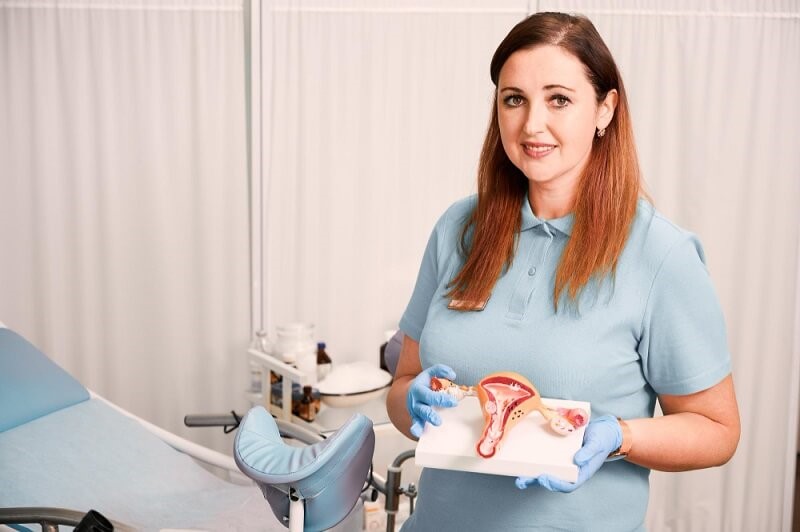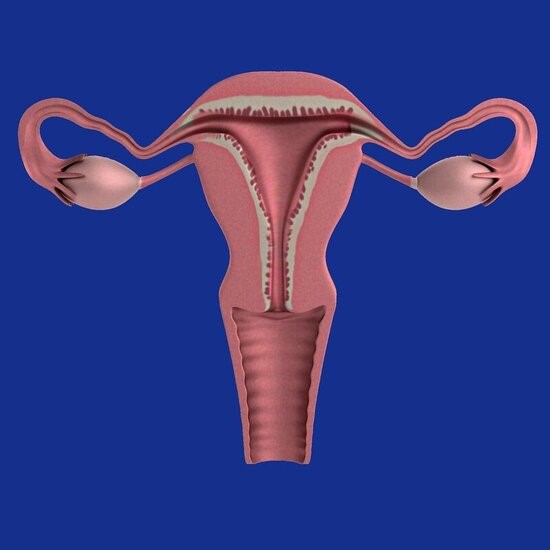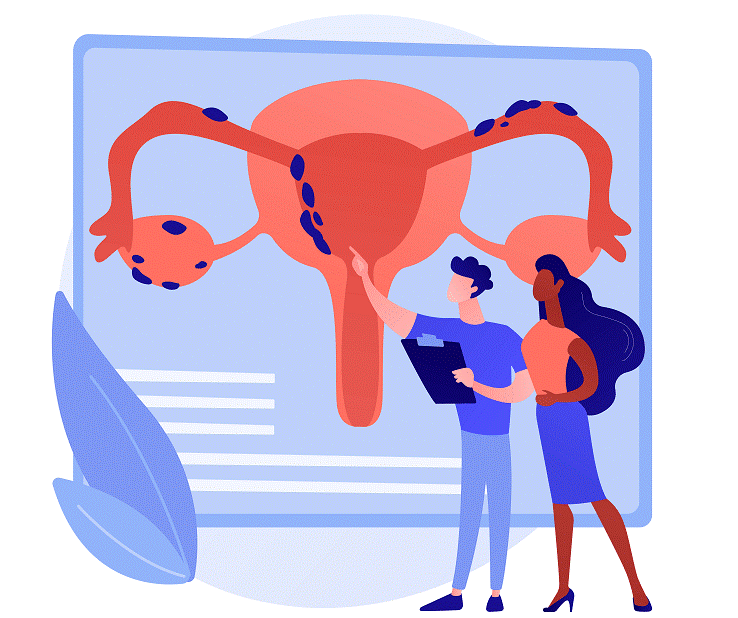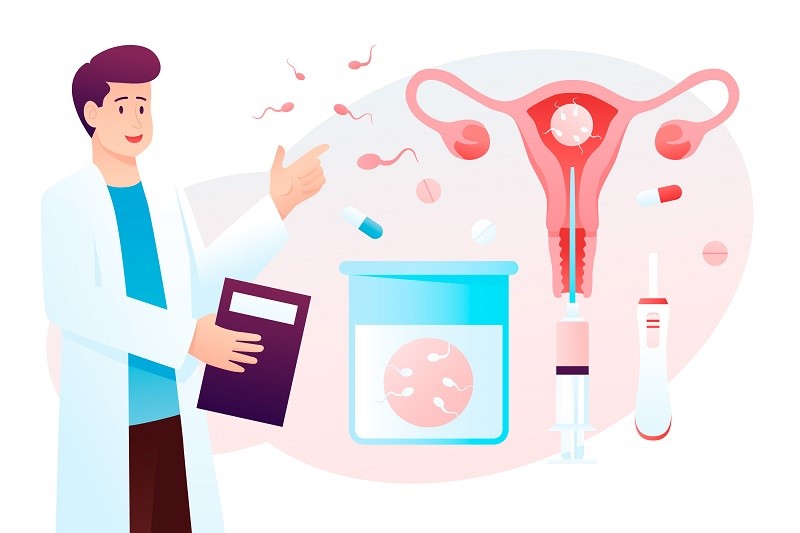Table of Contents
TogglePrimary Ovarian Insufficiency (POI) is a rare health condition that affects women under the age of 40. It is characterized by the ovaries’ reduced function, leading to diminished estrogen production and irregularities in releasing eggs. Primary ovarian insufficiency symptoms may include mimic menopause, such as hot flashes, night sweats, and vaginal dryness. However, unlike menopause, POI can occur at a much younger age. It is not a complete cessation of ovarian function. Women with POI may still have intermittent ovarian activity, leading to sporadic ovulation and periods.
This article goes into the frequently-overlooked aspects of primary ovarian insufficiency (POI), as elaborated by the Asian Institute of Infertility Management – IVF Centre in Indore. Understanding POI is essential for several reasons. Firstly, it directly impacts a woman’s fertility and her ability to conceive naturally. Secondly, the condition is often associated with other autoimmune or genetic disorders. Thus, it is a potential marker for broader health issues. Lastly, the early onset of menopause-like symptoms can have significant psychological and emotional effects on those affected. An in-depth understanding of POI aids in better management of the condition and improves the quality of life for those diagnosed.
So, let’s dive in.
What Are The Causes and Risk Factors of POI?
The underlying causes of POI can be complex and multifactorial. One of the primary risk factors is genetic predisposition. Chromosomal abnormalities, such as Turner syndrome, where a woman has only one complete X chromosome, significantly increases the risk of POI. Fragile X syndrome is another genetic condition. It can also lead to POI. In these cases, early detection and genetic counseling are important for managing health outcomes.
Autoimmune disorders represent another significant cause of POI. In these instances, the body’s immune system mistakenly attacks ovarian tissue. Then it reduces ovarian function and hormone production. Conditions like thyroiditis and adrenal insufficiency are commonly linked to this autoimmune-induced POI.
Environmental factors play a role as well. Exposure to toxins, such as cigarette smoke and chemicals, or medical treatments like chemotherapy and radiation, can harm the ovaries and lead to POI. Furthermore, viral infections such as mumps can occasionally damage the ovaries and result in POI. Understanding these risk factors is crucial for prevention and early intervention strategies.
What are The Primary Ovarian Insufficiency Symptoms?
The symptoms of POI can be quite distressing. They may significantly affect a woman’s day-to-day life. Irregular periods or amenorrhea, the absence of menstruation, are often the first indicators of POI. Women may notice that their menstrual cycles become unpredictable. Their periods may occur infrequently or cease altogether.
Issues with ovulation can result from inconsistent periods. It leads to challenges with fertility. Many women with POI may struggle to conceive without medical assistance. Hormonal changes due to POI can result in menopause-like symptoms, including hot flashes, mood swings, and decreased bone density. These symptoms can be quite disruptive and may require medical management to improve the quality of life.
Diagnosis and Evaluation of Primary Ovarian Failure
Diagnosing POI typically involves a combination of clinical evaluation and diagnostic tests. Healthcare providers will go through the medical history and perform a physical examination. They may inquire about menstrual patterns, fertility concerns, and other symptoms like hot flashes or vaginal dryness.
Blood tests are crucial in diagnosing POI. They measure hormone levels, such as follicle-stimulating hormone (FSH), estradiol, and anti-Müllerian hormone (AMH). These can indicate ovarian function. Elevated FSH levels are a hallmark of POI.
Imaging tests, such as pelvic ultrasound, are used to visualize the ovaries. These tests also assess the ovaries’ size and follicle count. This can help determine the remaining ovarian reserve. Genetic testing may also be recommended, especially if there is a family history of POI or related genetic conditions.
Complications and Associated Conditions
POI can lead to several complications due to the lower levels of estrogen. One significant concern is the increased risk of osteoporosis, as estrogen is vital for bone health. Women with POI are at a higher risk of fractures due to decreased bone density.
Cardiovascular health can also be compromised. Estrogen has a protective effect on heart health. The early loss of estrogen associated with POI may increase the risk of heart disease.
The psychological and emotional impacts of POI are profound. The sudden change in hormonal status can lead to mood swings, depression, and anxiety. The potential loss of fertility can also be a source of significant emotional distress.
What Are The Treatment Options?
Treatment for POI is tailored to address the various aspects of the condition. Hormone replacement therapy (HRT) is commonly prescribed to supplement estrogen. This can alleviate menopausal symptoms and reduce the risk of osteoporosis. However, the benefits of HRT must be weighed against potential risks, such as an increased risk of certain types of cancer. This must be carefully considered by a healthcare provider.
For those who wish to conceive, fertility treatments, including in vitro fertilization (IVF) with donor eggs, may be an option. Fertility preservation, such as egg or embryo freezing, may be discussed prior to treatments that could harm ovarian function, like chemotherapy.
Lifestyle and dietary changes can also play a supportive role in managing POI. Do regular weight-bearing exercise. Follow a diet rich in calcium and vitamin D. This routine can help maintain bone health. Avoid smoking and limit alcohol intake.
Final thoughts,
Primary Ovarian Insufficiency is a complex condition. It requires a comprehensive understanding and a multidisciplinary approach to care. Early diagnosis and appropriate treatment are critical in managing the symptoms and associated health risks. Women should be aware of the symptoms of POI. They should seek medical advice if they experience any changes that may indicate this condition. With the right support and management, women with POI can lead healthy, fulfilling lives.




